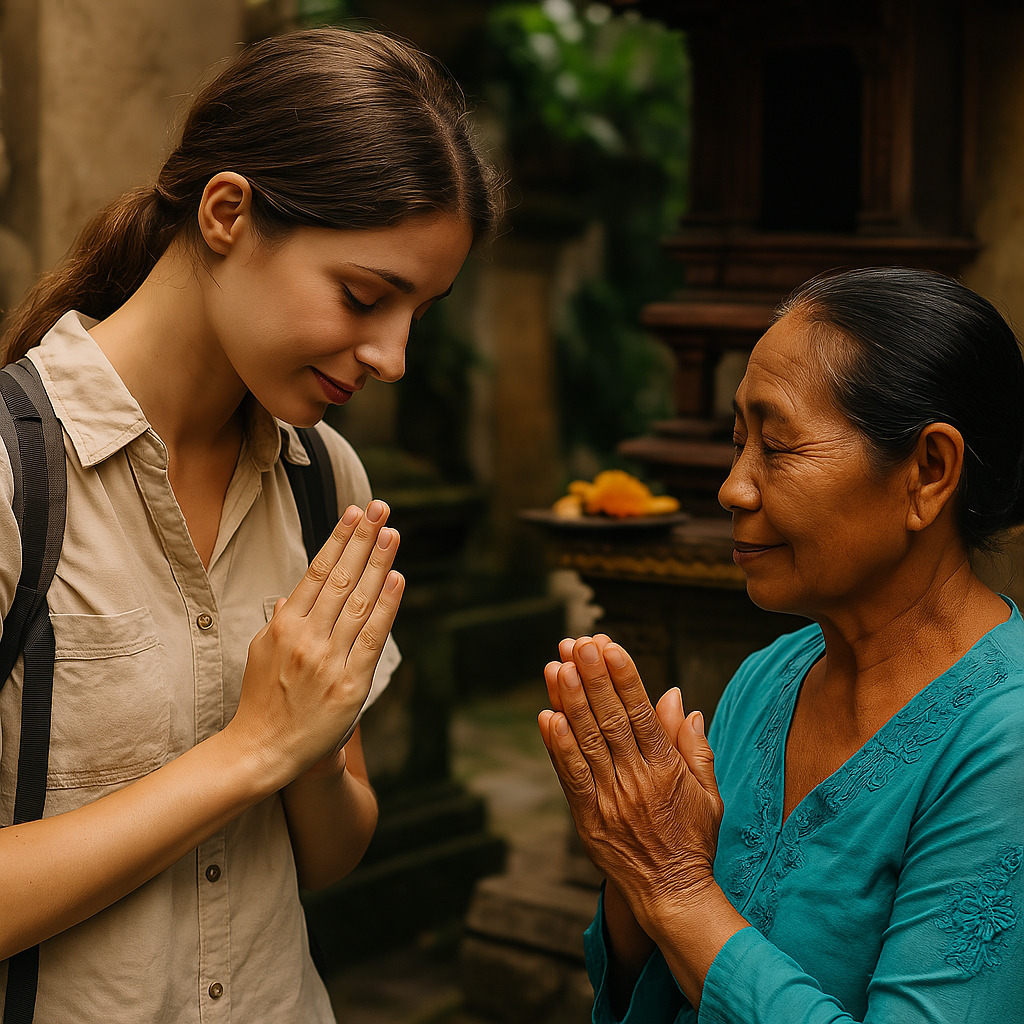The Travel Rituals: Unwritten Customs From Cultures Around the World.
Explore the travel rituals and unwritten customs from cultures around the world. Enhance your journeys with cultural insights and respectful practices.
Introduction: Rediscovering the Unspoken Traditions
In our fast-paced, globalized world, travel has become more accessible than ever. Yet, amidst the convenience of modern tourism, many of the subtle, unwritten customs that once enriched the travel experience are fading into obscurity. These travel rituals—the nuanced gestures, local etiquettes, and cultural norms—offer profound insights into the societies we visit. Understanding and honoring these practices not only deepens our travel experiences but also fosters mutual respect and meaningful connections.
The Significance of Unwritten Customs
Unwritten customs are the silent languages of cultures. They encompass behaviors and practices passed down through generations, often without formal documentation. Recognizing and adhering to these customs can:
- Foster Mutual Respect: Demonstrating awareness of local customs shows respect for the host culture, building trust and goodwill.
- Enhance Authentic Experiences: Engaging with these traditions allows travelers to experience destinations more authentically.
- Promote Sustainable Tourism: Respecting local norms helps preserve cultural heritage and supports responsible tourism practices.
A Journey Through Travel Rituals
1. The ‘Wai’ Greeting in Thailand
In Thailand, the traditional greeting known as the ‘wai’ involves placing one’s palms together in a prayer-like gesture while bowing slightly. This gesture conveys respect and is used in various social interactions. While modern influences have introduced handshakes, the ‘wai’ remains a significant cultural practice.
2. Removing Shoes Indoors in Japan
Japanese culture places great emphasis on cleanliness and respect for personal spaces. It’s customary to remove shoes before entering homes, traditional inns, and certain restaurants. This practice maintains the sanctity of the living space and reflects mindfulness. Travelers should be aware of this tradition to avoid unintentional disrespect.
3. The ‘Ma’nene’ Ritual in Indonesia
In the Toraja region of Indonesia, the ‘Ma’nene’ ritual involves exhuming the bodies of deceased relatives, cleaning and dressing them in new clothes, and parading them around the village. This practice reflects the Torajan people’s deep reverence for their ancestors and their belief in maintaining bonds with the departed. While it may seem unusual to outsiders, it’s a poignant expression of familial love and respect.
4. Tipping Etiquette in Various Cultures
Tipping customs vary widely across cultures. In Japan, tipping is generally not practiced and can even be considered rude. Conversely, in the United States, tipping is customary and expected in many service industries. Understanding these nuances is crucial for respectful and appropriate behavior while traveling.
5. Greeting Shopkeepers in France
In France, it’s customary to greet shopkeepers with a polite “Bonjour” upon entering a store and to say “Au revoir” when leaving. This practice reflects the French emphasis on courtesy and personal interaction. Neglecting these greetings can be perceived as impolite.
6. Cultural Etiquette in India: Respect Through Rituals
India, with its vast cultural diversity and deep-rooted traditions, is a land where unwritten customs shape everyday interactions. Understanding these unspoken rules helps travelers navigate this vibrant country with sensitivity and respect.
✅ Greeting with “Namaste”
The traditional Indian greeting—Namaste—involves pressing the palms together in front of the chest and bowing slightly. More than just a formality, this gesture is a sign of mutual respect and a recognition of the divine in others. While handshakes are becoming common in urban areas, especially in business settings, Namaste remains widely appreciated, particularly in rural or spiritual spaces
7. The Gulf Code: Respect, Modesty, and Tradition
Across Gulf nations like Saudi Arabia, UAE, Qatar, and Oman, unwritten customs rooted in Islamic and Bedouin traditions shape daily life.
- Dress Modestly: Cover shoulders and knees; women may wear abayas in conservative areas.
- Use the Right Hand: Always eat, greet, or offer items with the right hand.
- Avoid PDA: Public displays of affection are culturally inappropriate.
- Respect Prayer Times: Stay quiet or still during the call to prayer.
- During Ramadan: Don’t eat or drink in public during daylight hours.
- Hospitality is Sacred: Accepting coffee or dates is part of the traditional welcome.
Understanding these norms allows travelers to experience the Gulf with respect and authenticity—turning a visit into a deeper cultural connection.
Visual Guide: Cultural Etiquette Comparison
| Country/Region | Customary Greeting | Indoor Shoe Policy | Tipping Practice |
|---|---|---|---|
| Thailand | Wai gesture | Remove shoes | Not customary |
| Japan | Bowing | Remove shoes | Not customary |
| Indonesia | Handshake/Wai | Remove shoes | Not customary |
| France | Verbal greeting | Wear shoes | Included in bill |
| USA | Handshake | Wear shoes | Expected |
| India | Namaste | Remove shoes in homes/temples | Appreciated, not expected |
| Gulf Countries | Right-hand handshake or Salam | Remove shoes in mosques/homes | Appreciated but not mandatory |
Embracing and Respecting Unwritten Customs
To honor these travel rituals, consider the following practices:
- Research Before You Go: Familiarize yourself with local customs and etiquette.
- Observe and Adapt: Pay attention to how locals interact and follow suit.
- Ask Questions Respectfully: If unsure, politely inquire about appropriate behaviors.
- Be Open-Minded: Approach unfamiliar customs with curiosity and respect.
By integrating these practices, travelers can engage more deeply with the cultures they encounter, fostering meaningful connections and enriching their journeys.
Conclusion: The Value of Cultural Sensitivity
Incorporating an awareness of unwritten customs into our travels not only enhances our personal experiences but also demonstrates respect for the diverse cultures we encounter. By acknowledging and honoring these traditions, we contribute to a more understanding and interconnected world.
Call to Action
Ready to explore the world with a deeper cultural understanding? Visit TravellersCheck-In to plan your next journey with insights into local customs and traditions. Share your experiences and learn from fellow travelers committed to respectful and enriching travel.



0 Comment